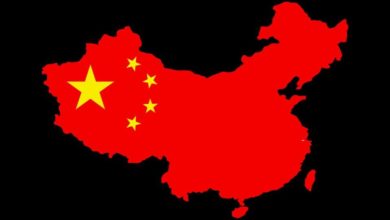الفلسفة والترجمة بين الماهوية والتعددية
Philosophy and Translation Between Essentialism and Pluralism

اعداد : منال محمد خليف – جامعة دمشق، دمشق، سوريا
المركز الديمقراطي العربي : –
- المجلة العربية لعلم الترجمة : العدد الحادي عشر نيسان – ابريل 2025 – المجلد4 – مجلة دولية علمية محكمة تصدر عن #المركز_الديمقراطي_العربي ألمانيا – برلين .
- تُعنى بنشر الدراسات والأبحاث الأكاديمية الخاصة بعلم الترجمة واللغات وعلم المصطلح، كما تولي اهتماما كبيرا بالأعمال المتَرجَمة من اللغات الأجنبية إلى اللغة العربية. بالإضافة إلى ذلك، تَفْسَحُ المجلة الباب أمام الباحثين في جميع تخصصات العلوم الاجتماعية والانسانية لنشر مقالاتهم العلمية خارج مجال الترجمة أيضا، وذلك في إطار محور تحت اسم “نافذة مفتوحة”، على ألا تتعدى هذه المقالات خمساً على الأكثر، إيمانا منا بأن المجلة جاءت لتنفتح على كل الباحثين مهما اختلفت مشاربهم واهتماماتهم البحثية.
للأطلاع على البحث ملف ” pdf ” من خلال الرابط المرفق : –
الملخص :
يروم البحث إلى توضيح العلاقة بين الفلسفة والترجمة من خلال عرض مراحل تطور العلاقة بينهما تاريخيًا، وإظهار التفاعل بين الفلسفة والترجمة، وفائدة كلّ منهما للأخرى، ويبين ماهوية هذه العلاقة عند جاك دريدا من خلال مفاهيمه عن الاختلاف والبقاء، وتأكيد أهمية التأويل في الترجمة، ودور التفكيك في تحليل النصوص واللغة لتبيان التناقضات الكامنة فيها، وإظهار تغير المعنى وتعدده. يوضح البحث أيضًا الصفات الفلسفية للترجمة عند أنطون برمان، التي أسسها على مفهومي التجربة والتأمل. كذلك العلاقة بين التعددية وترجمة النص الفلسفي عند بول فييرابند، ومفهومه عن اللاقياسية بين اللغات وتعذّر الترجمة؛ فاللغات لا تقبل القياس، كونها تتأسس على مجموعة من القواعد النحوية التي تحكم استخدام مصطلح معين وتضفي المعنى عليه، ويقود تغيرها إلى تغيير معنى الحدود المحكومة بها. ويقدم هذا البحث تطبيقنا لنظرية فييرابند في فهم مهمة المترجم، ويجيب عن التساؤلات التالية: ما دور الفلسفة في الفعل الترجمي؟ وكيف تطورت العلاقة بين الفلسفة والترجمة؟ ما أهم النظريات التي جسدت الماهوية بين الفلسفة والترجمة؟ وما ضرورة التأويل في ترجمة النص الفلسفي؟ ما مهمة المترجم استنادًا إلى التعددية؟
ينتهي البحث إلى تأكيد العلاقة الماهوية بين الفلسفة والترجمة، ودور الفلسفة في تزويد علم الترجمة بالمبادئ والمفاهيم الأساسية، كذلك الإستراتيجيات المتّبعة، وأهمية الترجمة في مساعدة الفلسفة على إغناء مضامينها ومذاهبها وتوليد فلسفات جديدة ودور التعددية في تحديد أخلاقيات المترجم وواجباته.
Abstract
The paper aims to clarify the connection between philosophy and translation by presenting the development stages of this connection historically, showing the interaction between it, and the benefit of each for the other, and revealing the essentialism of this connection in Derrida’s two concepts of difference and survival, his emphasizing the importance of Hermeneutics in translation, and role of deconstruction in analyzing texts and language to reveal their inherent contradictions and demonstrate the variability and pluralistic of meaning. The paper also clarifies the philosophical attributes of translation on Berman, which he based on two concepts of experience and reflection. As well as the relation between pluralism and the philosophical text translation of Feyerabend and his conception of incommensurability between languages and untranslatability because they are based on a set of syntactic rules that govern the use of a specific term and give it meaning. Changes in these rules lead to changes in the meaning of the terms they regulate. This paper presents our application of Feyerabend’s theory in understanding the translator’s task. The paper answers the following questions: What is the role of philosophy in the translation process? How has the connection between philosophy and translation developed? What are the most essential theories embodying the essentialism between philosophy and translation? And what is the necessity of Hermeneutics in translating a philosophical text? What is the translator’s task based on pluralism?
The paper concludes by fixing the essentialism relationship between philosophy and translation, the role of philosophy in providing translation science with basic principles, concepts, and the strategies followed. It also discusses the importance of translation in helping philosophy enrich its contents and doctrines and generate new philosophies, as well as the role of Pluralism in defining a translator’s ethics and duties.




